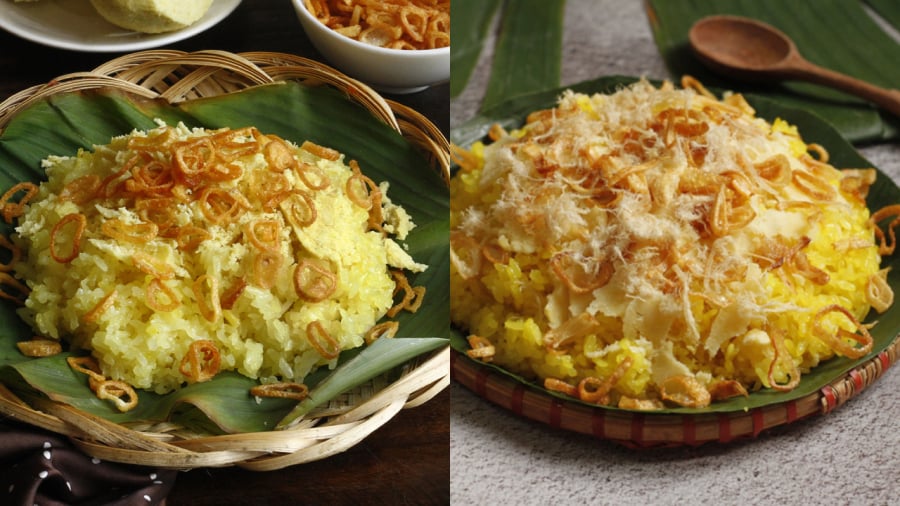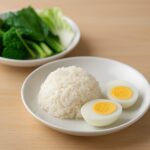Benefits of Eating Sticky Rice for Breakfast
Sticky rice is a familiar dish to Vietnamese people. It is commonly consumed in the morning to induce a longer-lasting feeling of fullness. The nutritional composition of sticky rice is quite diverse, making it not only a delicious meal but also a healthy one.
Sticky rice is predominantly composed of starch, which provides energy to the body. The starch in glutinous rice gives a prolonged sense of satiety and a full stomach. Eating sticky rice in the morning will supply your body with ample energy.
Sticky rice also contains protein; 100 grams of glutinous rice can provide 2 grams of protein. This is essential for the growth and maintenance of the body. Additionally, protein serves as a rich source of nutrition for your various activities.
Furthermore, sticky rice encompasses other nutritional components. Within 100 grams of glutinous rice, there is 1 gram of insoluble fiber. This fiber aids in digestion and energy provision.
Individuals Who Should Refrain from Eating Sticky Rice for Breakfast
- Overweight or Obese Individuals
Sticky rice, derived from glutinous rice, possesses equivalent levels of starch and energy as white rice. Particularly when paired with other foods such as meat, eggs, or sausages, it can lead to weight gain and challenging weight management.
- Diabetics
Glutinous rice, once ingested, is swiftly absorbed in the stomach. For diabetics, consuming excessive amounts of glutinous rice dishes, akin to sticky rice, compromises blood sugar control, resulting in elevated blood sugar levels over a short period.
- Individuals with Purulent Wounds
Sticky rice and other glutinous rice dishes may impede wound healing and even facilitate pus formation. Therefore, overweight or obese individuals, who are more susceptible to purulent wounds, should refrain from consuming excessive amounts of sticky rice.

- Individuals with a Hot Body Constitution
Excessive sticky rice consumption can induce internal heat, acne breakouts, and heat flashes. Thus, it is advisable for individuals with a hot body constitution to limit their intake of this dish.
- Individuals with Stomach Ulcers
While sticky rice consumed in the morning can induce prolonged satiety for some individuals, it is challenging to digest. When glutinous rice transforms into sticky rice, it becomes harder to digest and can trigger acid reflux. Hence, it is best for individuals with stomach ulcers to minimize their intake of sticky rice.
Precautions When Eating Sticky Rice for Breakfast
Sticky rice provides prolonged satiety, but improper consumption can impact your health. Experts advise consuming sticky rice in moderation and combining it with other foods to enhance nutrition and create a balanced meal.
Although sticky rice helps you stay full for extended periods, it may not provide all the nutrients your body requires for morning activities. Therefore, to avoid nutritional deficiencies, pair sticky rice with dishes like meat stew, sausages, or eggs.
Refrain from eating sticky rice more than twice a week, and even then, consume it in moderate quantities. Chew your food thoroughly to facilitate easier digestion and prevent constipation and blockages.
“The Dark Side of Fish Sauce: Uncovering the Hidden Health Hazards”
“Fish sauce is an integral condiment in Vietnamese cuisine, yet the art of its usage remains elusive to many. This humble sauce, a staple in every Vietnamese kitchen, holds the power to elevate dishes with its unique savory flavor. But, like a hidden gem, its potential remains untapped by those unaware of its magic. It’s time to uncover the secrets of this liquid gold and explore the myriad ways it can transform your culinary creations.”





































